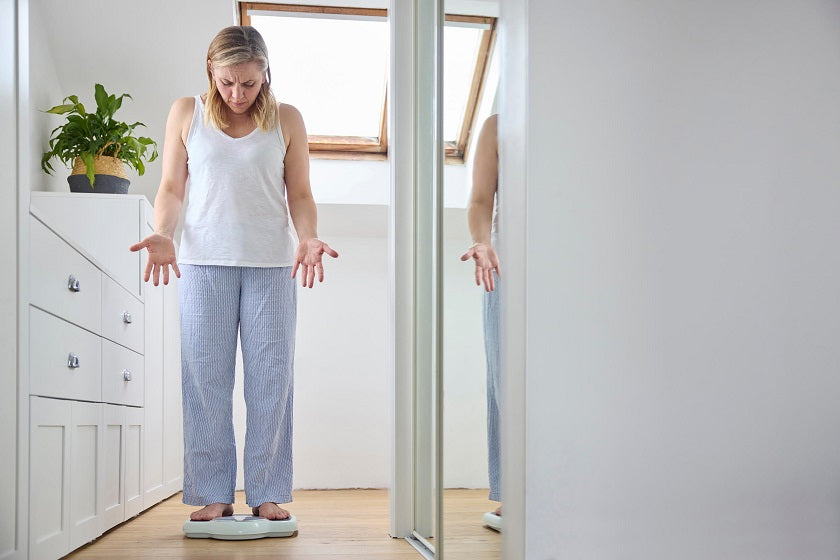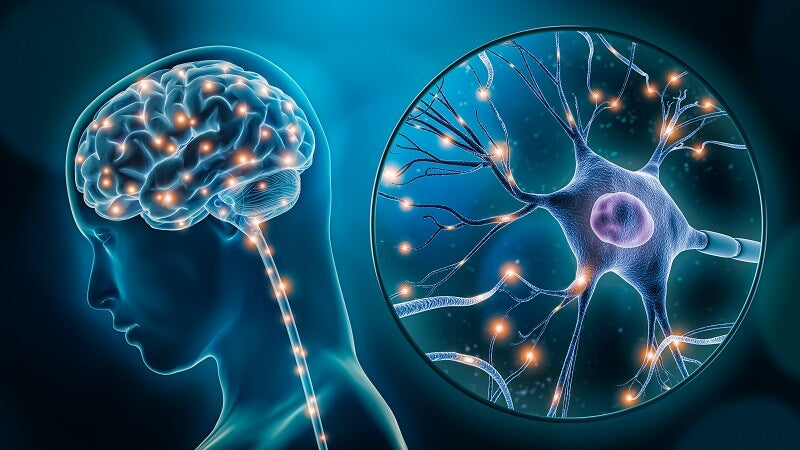Perimenopause, the transitional phase leading up to menopause, is a significant and often challenging period in a woman's life. One of the most common and frustrating symptoms during this time is weight gain. Many women find themselves battling the bulge despite maintaining their usual diet and exercise routines. So, what exactly causes this perimenopausal weight gain?
Primary Causes of Perimenopausal Weight Gain
1: Hormonal Changes
Hormones play a central role in perimenopausal and menopausal weight gain. As a woman's body prepares for menopause, there's a significant shift in hormone levels, particularly oestrogen and progesterone. These hormonal fluctuations can affect metabolism, leading to slower calorie burning and increased fat storage, primarily in the abdominal area.
As your levels of progesterone and oestrogen drop, the adrenal glands should take over the production of alternative hormones which are more androgen-based. By supporting this mechanism, your body is less likely to hold fat cells that assist with hormone production.
2: Metabolism Slowdown
A decline in oestrogen levels can impact the metabolic rate. A slower metabolism means that the body burns fewer calories at rest, making it easier to gain weight, even if dietary habits remain unchanged.
3: Muscle Mass Reduction
Aging, coupled with hormonal changes, can lead to muscle loss. Muscle tissue burns more calories than fat tissue, so a decrease in muscle mass can contribute to a reduction in overall calorie expenditure.
4: Insulin Resistance
Perimenopausal and menopausal women are at a higher risk of developing insulin resistance, a condition where the body's cells become less responsive to insulin, a hormone that regulates blood sugar. This can result in increased fat storage, especially around the abdomen, and make it more challenging to maintain stable blood sugar levels.
5: Lifestyle Factors
While hormonal changes are a primary contributor, lifestyle factors also play a role in perimenopause weight gain. As women age, they may become less active due to busy schedules or decreased energy levels. Stress can also lead to overeating or unhealthy eating habits, contributing to weight gain.
6: Poor Sleep Quality
Sleep disturbances are common during perimenopause and menopause, and poor sleep quality can disrupt hormonal balance and increase appetite. This can lead to overeating and weight gain over time. Poor sleep also is a primary cause of insulin resistance.
7: Genetic Predisposition
Genetics can play a role in how women experience perimenopause weight gain. Some women are genetically predisposed to gain weight more easily during this phase of life.

Managing Weight Gain During Perimenopause & Menopause
While perimenopause and menopausal weight gain is a common concern, it is not inevitable. Women can take proactive steps to manage their weight during this phase. Regular exercise – including strength training to preserve muscle mass, a balanced diet rich in whole foods, and stress management techniques – can all contribute to maintaining a healthy weight.
Focusing on a wellness lifestyle is the key. Here are some tips to address each of the primary causes of weight gain.
1: Conquer hormonal changes.
The important thing to understand is that your body will reduce progesterone and oestrogen naturally as part of the transition; however, with proper supplementation during this phase, the body will convert to an androgen-based hormonal system that supports and nourishes your body. This is a normal physiological process and nothing to be concerned about. Using products like Happy Hormones supports your body on this journey to produce hormones from the adrenal glands.
2: Address metabolism slowdown and muscle mass reduction.
The secret to maintaining metabolic rate is two-fold. First is maintaining muscle mass and activity levels. If you don’t use it, you lose it. This is critical at this age and beyond. A mix of cardio and weights is key – the more consistent, the better your metabolism will be. Find a sport you like that combines both. Something like outrigger paddling or even racket ball works best.
3: Overcome insulin resistance.
Insulin resistance is one of the most common issues and triggers most perimenopausal and menopausal weight gain. Simple sugars and too many carbohydrates are the main issues here, along with alcohol. Also, lack of sleep is a driving factor. Magnesium, gymnema, and chromium are three really good ingredients to assist the body in improving insulin resistance along with regular exercise and sleep. MSP, Happy Calm, and Happy Hormones contain these ingredients.
The best way to reduce insulin resistance is exercise. It can take a month or two for exercise to drain your glycogen stores, and then your body will become more sensitive to insulin, and the weight will start to come off. But it takes time for this to change as it has slowly been developing over many years.
4: Look into lifestyle factors.
Of course, diet and lifestyle play a huge role. We have our free Happy Hormones program, which you can use to improve your diet and lifestyle. Try it and adapt where you need to create a lifestyle that supports wellness. Consequently, weight management is a nice side effect rather than the focus.
5: Get sufficient, quality sleep.
Sleep is everything. When you don’t sleep, the body doesn’t repair. When you don’t get quality sleep, your biological processes don’t work well. A good example is when your insulin efficiency becomes 50% less effective with only 4 hours of sleep. Read this article to understand how to establish a healthy sleep cycle.
6: Defeat genetic predisposition.
Genes are genes, and there is nothing we can do to change that. However, everything I have mentioned above will influence whether those genes are activated or not. A genetic predisposition to hormonal weight gain can be completely avoided by following a healthy lifestyle.
Closing Thoughts
With the right strategies and support, women can navigate perimenopause with confidence and good health. To learn more about our program and approach, click here.












Leave a comment
This site is protected by hCaptcha and the hCaptcha Privacy Policy and Terms of Service apply.